"I did a random act of kindness every day for seven days and the reactions shocked me..."
Does a random act of kindness really help anyone? One mum shares her experience
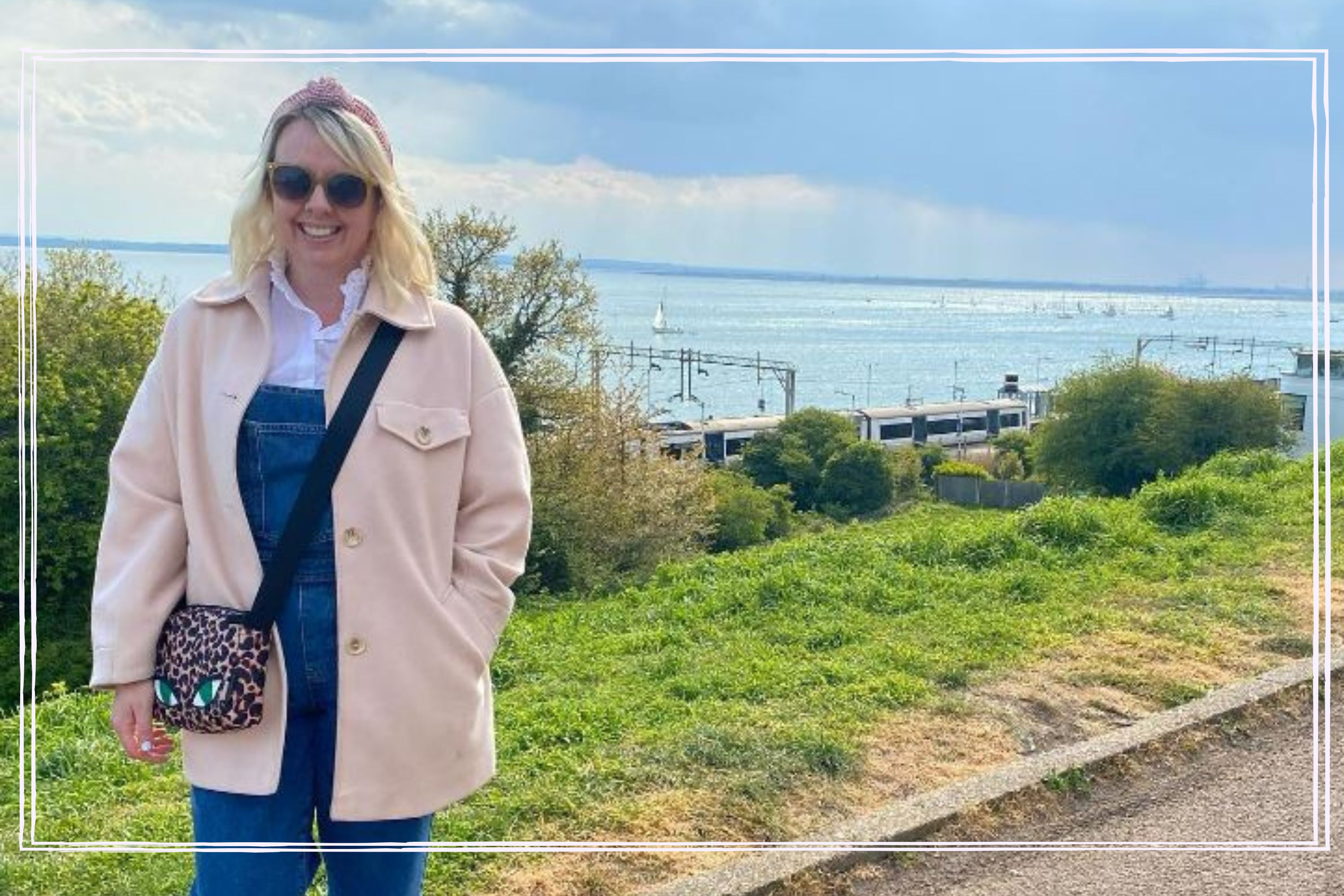

A random act of kindness can be planned or a sudden decision, either way, can receiving kindness make people kinder? I took the challenge and tried one intentional random act of kindness a day for seven days.
Kindness has never been more important than now. We’re living through glum times. Just out of a global health pandemic and now plunged into a cost-of-living crisis, it’s no surprise that we may be struggling a little. It’s not just us adults that are feeling it either, children’s mental health problems are also on the rise - according to The Children’s Society, 1 in 6 children aged 5-16 are likely to have a mental health problem, kindness activities might help with this.
While we can deal with this mental health crisis in different ways, from reading self-help books to listening to the best podcasts for mental health, I’m wondering if showing a little kindness is the real solution. If we can spread some joy with a random act of kindness or two, we can all benefit, no? Or am I being foolish?...
Random act of kindness: one every day for seven days
Integrative Counsellor, Psychotherapist and Clinical Supervisor Lynette Evans believes kindness is a really important part of being human. “Kindness helps people feel more connected to their community and can deepen our friendships with others,” she tells me. “A random act of kindness can be beneficial for those giving as well as those receiving the kindness. It can also help our own wellbeing as kindness can boost our feelings of confidence, can increase our self-esteem and improve our mood as acts of kindness release endorphins (the feel-good chemicals) and reduce cortisol, our stress hormone.”
It seems kindness activities for kids can also really help young minds, and is one of the reasons founder of kindness charity 52 Lives, Jaime Thurston, offers kindness workshops across schools, she tells me; “Our workshops aim to empower children by helping them realise that their choices and their actions have the power to change lives, change the world while improving their own wellbeing at the same time,” she says. “What an amazing world it would be if children could grow up knowing that ‘kind’ is the most important thing they can be!”
As a mum-of-one, I worry about my 12-year-old son growing up in a world full of social media trolls, and bullies at school as well as anxiety about how we can afford to live. With this challenge I want to show him that the world isn’t so bad, that kindness is all around us, and that we can actually be part of the solution. I’ve been the recipient of kindness before, and it’s made so much difference in my life. From a stranger’s compliment about my shoes on a day when I’d just lost my job, to the time my old neighbour knocked on the door and asked if I was OK just after giving birth to my son; these events stick in my mind as they helped me through tricky moments.
While I think I’m a pretty kind person, especially to my family and friends, I’m not so confident when it comes to strangers, so how do I start on my challenge to show random acts of kindness for a week? Jaime tells me I just need to get stuck in. “The best way to begin is to begin!” she says. “But it’s also important to remember that kindness doesn’t even need to be about ‘acts’- an even better way is to try to see kindness as an approach to life rather than a one-off thing that you do. When you adopt a kind mindset, it will guide everything you do and every interaction you have.”
GoodtoKnow Newsletter
Parenting advice, hot topics, best buys and family finance tips delivered straight to your inbox.
With that in mind, I begin my 7-day challenge…
1. Babysat a friend’s child
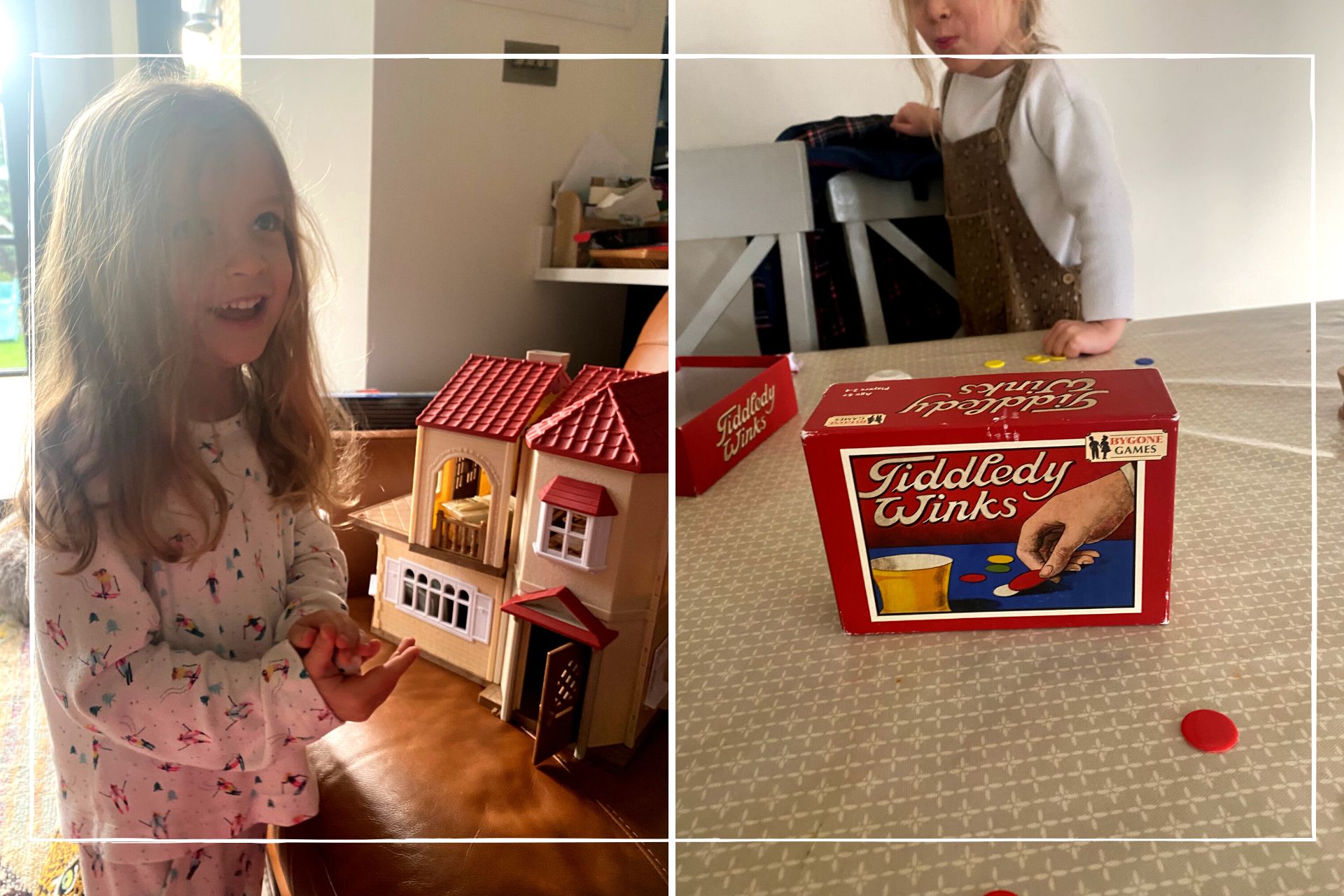
I decide to start off easy by offering to babysit my friend Emma’s little girl. After seven years, she is returning to the workplace, and I figure she might need a hand while she navigates arranging childcare and other stuff before she starts her new job. I get stuck in as soon as I arrive encouraging Amelie to get dressed and plaiting her hair. We then play tiddlywinks and arrange her new dolls house. While Emma isn’t out of the house, it allows her to get some things ticked off her very long to do list. “Babysitting is a helpful way to ensure that a mum gets some time for herself,” says parenting and early years specialist, Kirsty Ketley.
“Whether it’s to spend time with her partner or to run errands, it will have perhaps enabled her to feel more able to tackle her life as a mum because she has had chance to relax/get other things done.”
The three of us then go out for lunch. I let Emma brain dump while we chat. I figure when you’re going through a big change like this, you need a sounding board and I’m happy to be that. As far as random acts of kindness go, I had a ball with this one. Yes, I had to go out of my way to get to their house – they live an hour’s drive from me - but what I got in return was so worth it.
I have a grumpy tween at home, and I’d forgotten how joyful it is to be around younger kids. Amelie laughs at all my jokes and thinks I’m the height of cool, whereas my son doesn’t want to be seen with me anymore. I leave literally feeling on top of the world and wishing I could’ve stayed longer.
Reaction: I get home to a thank you text from Emma, along with apologies for talking at me. I tell her not to be silly – that's what friends are for. I feel like I’ve got this random act of kindness thing nailed already...
2. Gave up my train seat to a pregnant woman

On a trip into London on the train, I remember Jaime’s advice. “Don’t wait for someone to ask for your help,” she says. “Look up, be observant of what’s going on around you and opportunities to be kind will present themselves.”
So, I take my nose out of my book and see that just down the carriage is a mum-to-be. She doesn’t look super pregnant, but she’s wearing a ‘mum on board’ badge I remember that first trimester as a right doozy with headaches and exhausting tiredness, so I resolve to give her my seat. I'm always nervous about even thinking of doing this as some people can get a bit defensive about being offered a seat. Plus this is a very full train, making navigation to my seat tricky as it's so crowded. Never the less I carry on, my mild barely-there wave growing a bit bigger and more frantic with every passing moment. I eventually catch her eye, and she gratefully takes up my offer. (phew)
“Giving up your seat will have allowed a mum to be to feel more relaxed and comfortable on her journey,” says Kirsty - and she’s certainly right about this case.
Reaction: Even though she’s only in the early months of pregnancy, train mum - also known as Zara I found out later - is suffering from awful morning sickness and was relieved when I gave her my seat. I ask her if this happens very often and sadly, she says no. Sometimes she’s even had to ask for a seat when she’s felt super queasy and been refused. I resolve immediately to do this more often, after all as she tells me “… It costs nothing to ask someone if they’d like your seat.”
3. Complimented a mum
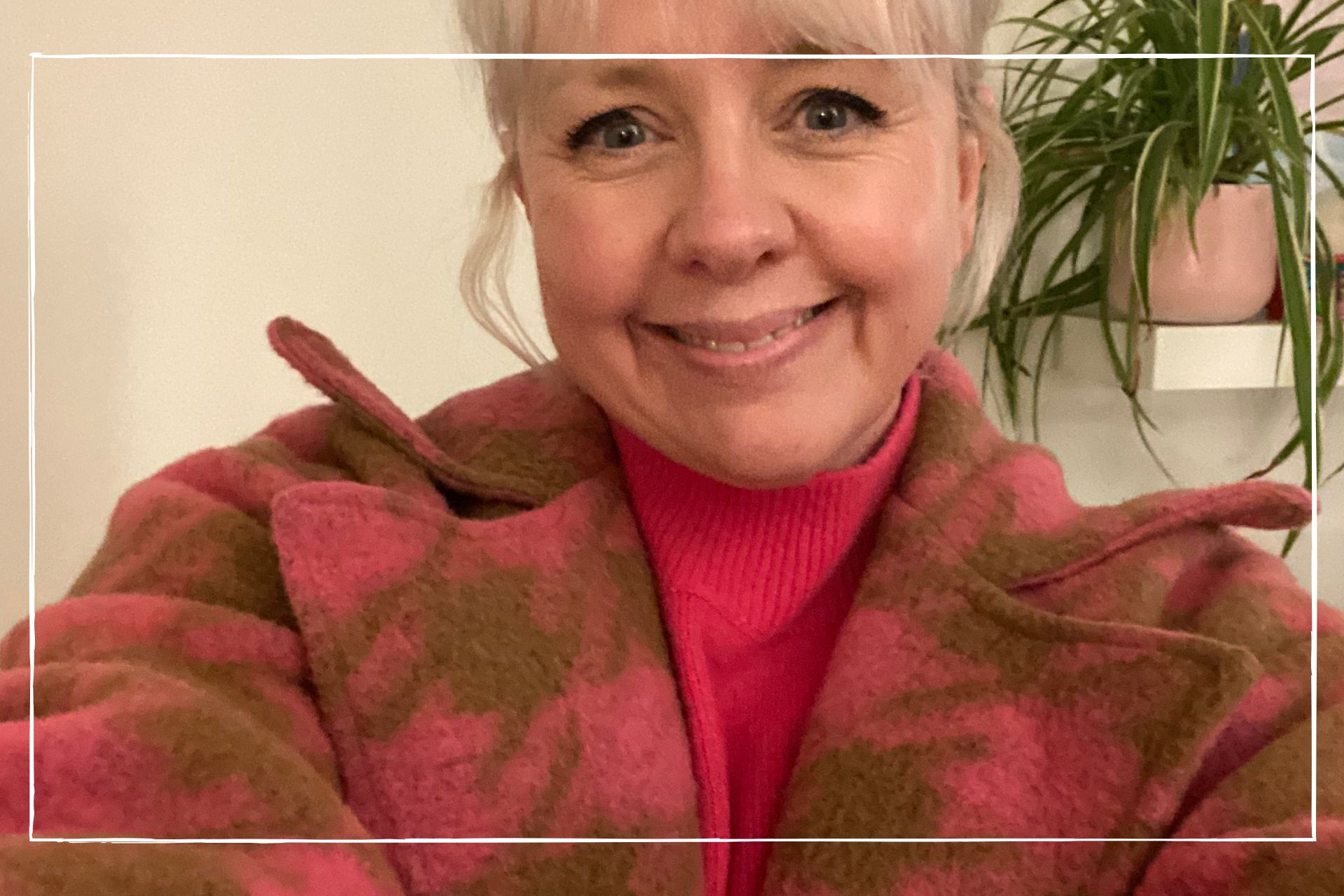
It’s time to get out of my comfort zone with these random acts of kindness. I’m naturally quite introverted and find starting up conversations with strangers difficult, but I’ve vowed to try and expand my horizons by complimenting someone – eek! One of my mum-friends Amanda says it’s something she does all the time as she loves the boost it gives them - and her.
“I only do it when I seriously love what they’re wearing,” she tells me, advising me not to dish out fake compliments as it just never feels sincere.
Taking on board her advice, I decide to compliment a mum while out for dinner with my family. She has a very lively toddler with her, who is amazingly well-behaved during dinner. After the little girl has finished eating, she starts playing with some toys and decides to bring me one, so I use this moment to compliment the mum on how well-behaved her daughter is. She smiles and says it’s not always like this, but she really appreciated my comment as it’s so hard. I point to my tween with his head in his phone and smile empathetically.
My next compliment comes as I’m walking my dog. Coming towards me is a vision in pink pushing a pram. Her coat is a thing of beauty, and I could so easily walk past and say nothing, but I push myself to tell her I love her coat so much. She smiles, says thanks and walks on.
Reactions: English people aren't well versed in accepting compliments, instead shunning them awkwardly. But on these occasions, my compliments went down okay. Obviously, as these are brief encounters, you never know if you’ve made a difference, but Kirsty says it definitely would have made a lasting impression.
“Complimenting another mum could have made her feel more confident in her own abilities as a mum and made her feel good about how she looks when she has perhaps felt less confident,” she says.
I know I feel happy to have spread some joy – and it wasn’t that scary. In fact, it inspired me. When I get home, I decide to bravely add some colour to my wardrobe, so snap up a pink coat in the sales. It brings me such joy to wear, so this act of kindness definitely benefitted me as well.
4. Invited my son to draw a picture for my friend
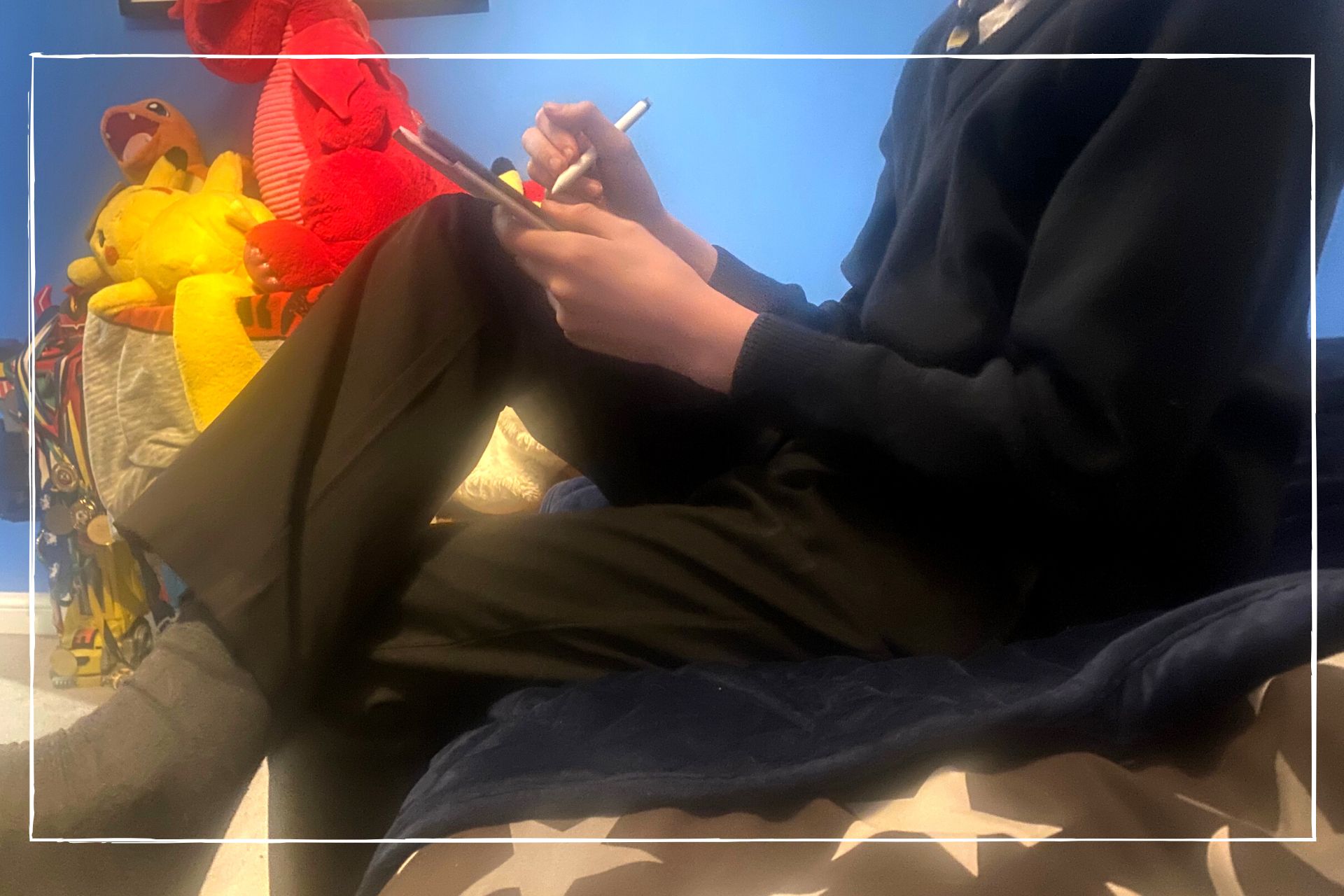
I’m getting the hang of this now, so I feel it’s time to get my son Milo involved, as Jaime tells me random acts of kindness for kids can really be of benefit. “Being kind is one of the simplest things someone can do to improve their well-being,” she tells me.
“It causes chemical changes to happen in the body that helps to alleviate anxiety and depression, increase happiness, reduce blood pressure, and slows aging. It benefits those you are being kind to in the same way, and also builds strong and supportive communities. I can’t think of a more important thing to teach children than that!”
I want to start small with my son, who is autistic and can struggle with the overload of just day-to-day living, so we chat about a way we can cheer up my close friend. She’s a single mum, who works and is doing a university degree, so she has a lot of stress in her life. We’re on a tight budget though thanks to the cost-of-living crisis, so Milo suggests he draws a picture for her.
He's a talented artist and takes the challenge on with gusto, spending a good hour creating a masterpiece on his iPad. It’s a brilliant picture and is full of colour and fun and we can’t wait to share it with her, so we WhatsApp her the image straight away. Milo worries about what people think about art so he waits anxiously by the phone for her reply, but he needn’t have worried.
Reaction: “Wow, that’s amazing!” she texts. “Thank you so much, I love it!” Milo’s beaming with happiness and my friend is also happy and feels warm at the thought that we were thinking of her while he drew the picture, so I’d say that’s a win-win all around.
5. Packed bags for a stressed mum at the supermarket
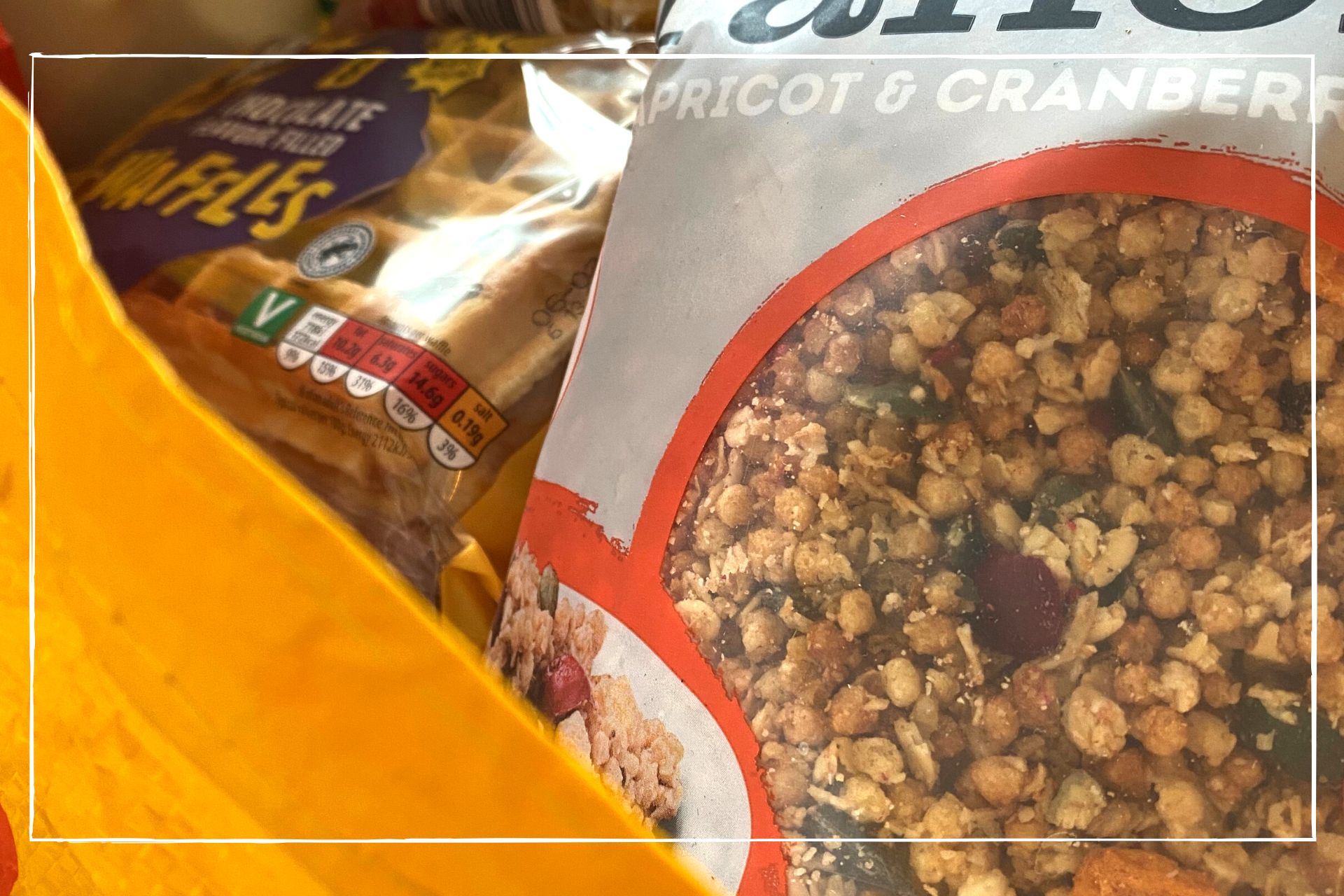
While I’m in a queue at the supermarket, an opportunity to enact one of my random acts of kindness suddenly appears. I can see the lady in front of me is struggling to pack her bags. She’s got a very small baby who is crying its heart out and she’s getting stressed.
I remember those days only too well. My son had reflux as a baby and cried non-stop for the first few weeks of his life. I hated being in public and it would stress me out so I immediately spring into action and ask if she’d like me to pack her bags, so she can pick up her son and comfort him.
Reaction: The relief in her eyes tells me it’s a yes straight away. We chat briefly while she soothes her son and I pack the bag. She tells me that she hates going to the supermarket on her own, but her husband is away working. I sympathise with her as I was the same and she says that makes her feel much better. I also tell her things will get better as I know I wanted to hear that often in those early days.
It only takes a few minutes of my time, but I really feel like I’ve helped someone in quite a major way, which Kirsty agrees with. “Packing bags for a stressed mum will have made her feel that you have her back, that she is understood and that someone cares. It will have helped her keep calm in the chaos,” she says.
6. Donated my son’s old toys to our local nursery
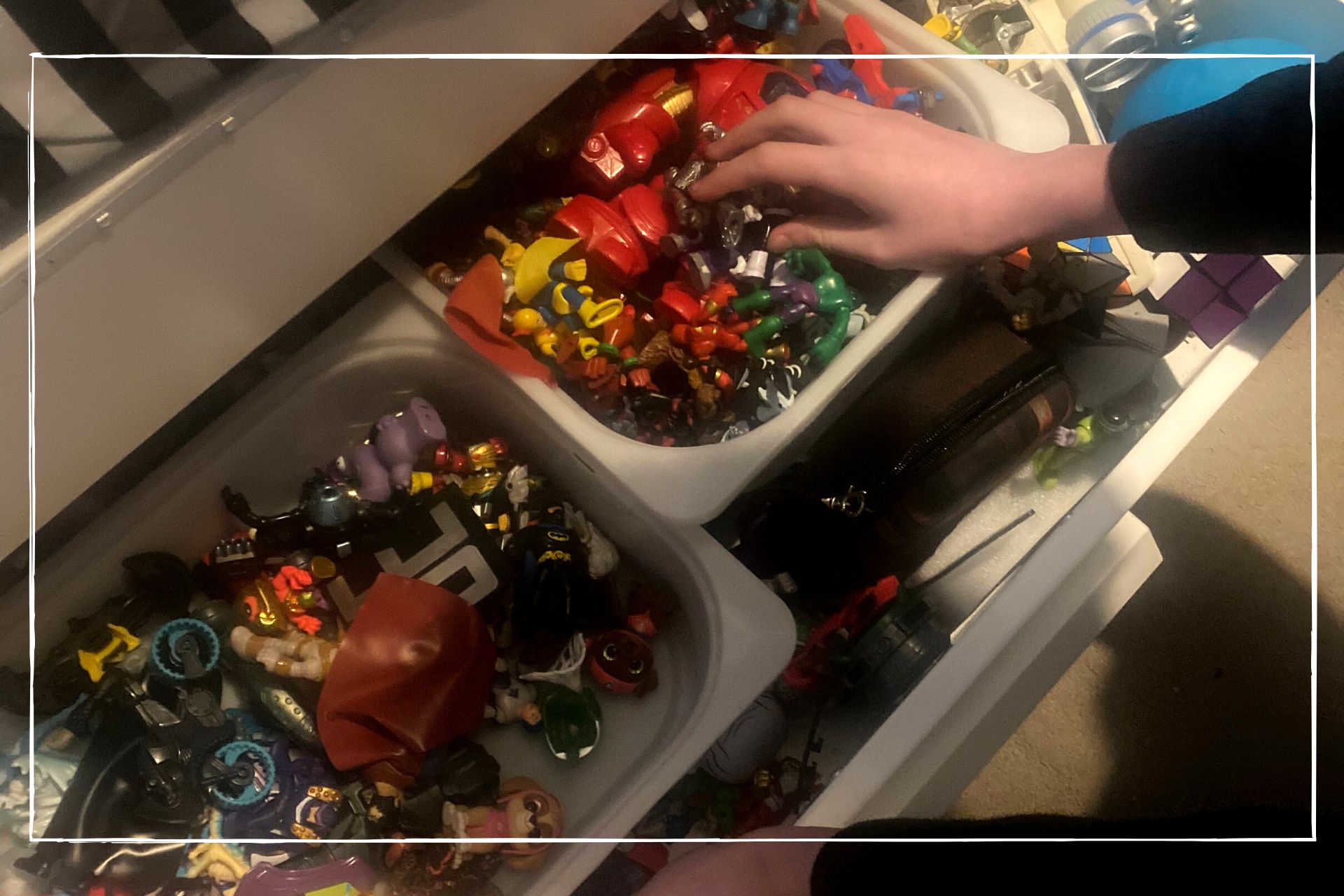
After the success of my son first random act of kindness, I decide to see if we can do another one. As Milo is autistic, empathy doesn’t come naturally to him, and I realise this is an important part of being kind.
“Empathy is important, but it can be tricky for all children to grasp,” explains Kirsty, who says for children like my son it can be hard to read between the lines. “They may not take someone's feelings into account, but with the correct guidance, you can help them learn by finding ways that help them understand emotions,” she advises me. “This will be unique to your child, and it may mean they don't feel those emotions themselves, but they will learn how to navigate others’ emotions.”
I asked Milo if there are any other kind acts he’d feel comfortable doing and he immediately offered up donating his old toys. This shocks me as he hates getting rid of anything because of all the memories associated with them. “Donating toys is a great way to teach your child kindness and support a nursery where they will have limited funds to update their toys,” says Kirsty.
Reaction: We start to sort out the toys, deciding to donate them to a local nursery, which is run by a charity. They’re delighted with the donation, and I tell Milo that he’s made lots of kids very happy. He does keep some toys to sell on eBay, as he’s saving up for a new monitor, and I’m totally behind that, however, he tells me that he’s going to give some of his profits to a local charity that supports families with autistic children. I nod along quietly, but inside I’m screaming with joy. These random acts of kindness for kids seem to be having the desired effect.
7. Bought a tired mum a coffee
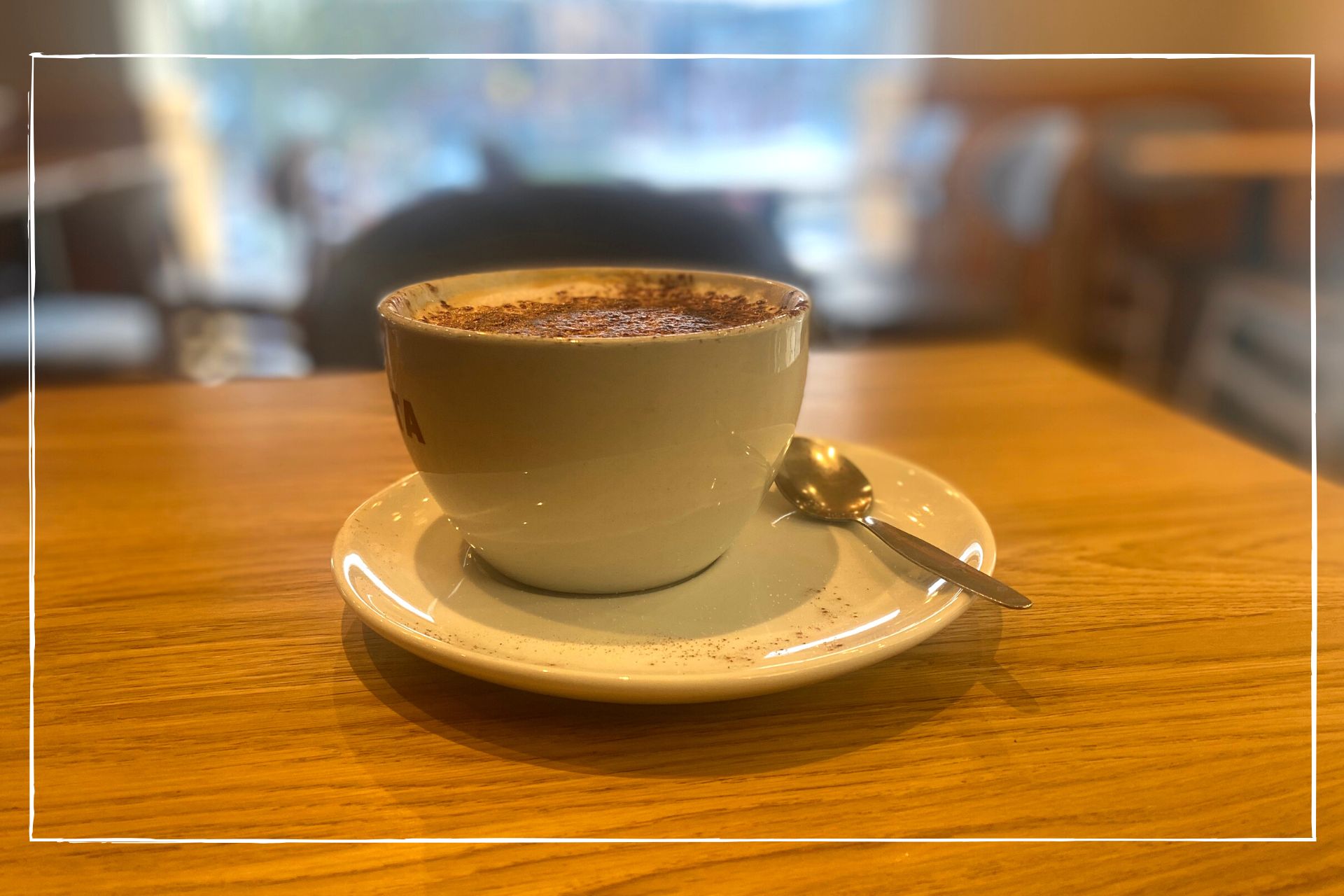
For the last of my random acts of kindness, I decide to go bolder and bigger while working at my local coffee shop. I often pop out for a few hours to write and on this particular day, there’s a tired looking mum ordering a coffee in front of me. I recognise myself in her straight away. Even though he’s 12, my son still struggles to sleep and I’m often up with him in the night. Perhaps it’s because of this silent allegiance, I suddenly find myself piping up asking if I can buy her coffee for her.
Reaction: Her response isn’t what I expected. She mumbles a thank you while looking down, takes her coffee, and walks off. The barista tells me what a nice thing it was to do, but I feel mortified. Perhaps I offended her.
What’s worse is that the only seat free in the place is next to the tired mum. I sit down and hope for the ground to swallow me up, but it doesn’t. After a few minutes of tapping away at my keyboard, she turns to talk to me.
“I’m sorry I wasn’t more appreciative, but I was just so shocked,” she says. “No-one has ever done anything like that for me before and it just took me by surprise. It was lovely, really kind of you.”
We then have a chat about the awful tiredness of being a mum, laugh about the funny things kids do, and generally have a nice chat. In fact, before she leaves, we’re following each other on Instagram and promising to stay in touch. It’s made me realise that while random acts of kindness are great, you can’t always expect a positive response, but that shouldn’t stop you from trying.
“You never know how someone is feeling, or what their situation is, so kindness always pays,” says Kirsty. “As parents we should all be there giving support, being kind and putting ourselves in other shoes. Let's face it, most of us have been there and know what it is like and what would have helped in those moments.”
My random acts of kindness - what I learned
I think the biggest thing I’ve learned is that being kind to someone, especially off-the-cuff or to a stranger, has a big effect on both the giver and the receiver.
“Doing random acts of kindness is altruistic behaviour,” says Kirsty. “Putting the wellbeing of others before yourself without expecting anything in return will make you feel good while helping others and making them feel good.”
I’ve also learned that not everyone will love your random acts of kindness, so it’s best to do them not for the reward you’ll get, but for the love you’re spreading. Saying that, while it’s nice to have good intentions behind your random acts of kindness, I don't think it really matters if you mean it or not – the other person reaps the rewards and that's all that matters.
I’ve definitely felt on top of the world after this week, but what really made me happy was seeing my son get involved. Yes, children are naturally self-absorbent so I don’t expect him to donate all his belongings to charity or suddenly think of others constantly, but he’s definitely more aware of the impact he can have. It’s made me realise just how much of an influence - even at this tricky age - we have on our kids.
“Children are always watching and listening, so show them how to be kind,” says Kirsty. “This may be as simple as greeting people politely, saying thank you or complimenting someone, but it is equally important that you show love, compassion, empathy, and understanding towards your child too - even during the times you may feel it is tricky to do so.”
I’ve definitely taken this last bit of Kirsty’s advice to heart. Tweens are notoriously difficult to parent, so I’ve started showing him some extra kindness by putting myself in his hormone-fuelled shoes and trying to understand how difficult it is to be a teenager in this day and age. Yes, even when he rolls his eyes or slams the door in my face…
10 examples of random acts of kindness
There are lots of ways to show kindness, but it can be difficult to know where to start. “I would suggest starting simple by following the social media channels of charities or good causes that you are interested in and maybe this will inspire you to do more,” advises Lynette.
“Alternatively, just add a can of soup or packet of pasta to your local food bank donation point the next time you are in the supermarket.” Here are some other simple random acts of kindness for kids and adults alike:
- Send a little card a loved one who you’ve not spoken to for ages
- Bake something for your neighbour
- Pick litter up from your local neighbourhood
- Let someone go in front of you in the queue
- Tell someone what you love about them
- Offer to walk someone’s dog
- Lend a friend your favourite book or toy
- Make a cup of tea or cold drink for someone at home or at work
- Make someone laugh
- Sign up for a sponsored something and raise money for your favourite charity
Related features:
- Kindness activities for kids to spread positivity
- Facts to blow your kids' mind
- Best podcasts for mental health
Video of the Week:

With over 24 years’ experience in journalism, she’s written about a variety of subjects and is just as at home interviewing A-list stars as she is testing nappies. Having started her career writing about Pokémon, ponies and wrestling, Jayne moved into the world of film journalism, where she spent the next eight years pinching herself while she got paid to interview Hollywood film stars and attend premieres. Since then, she’s launched websites for major magazines, worked with top brands such as Westfield, LK Bennett and Hunter, and had her own tech column in Women’s Own.